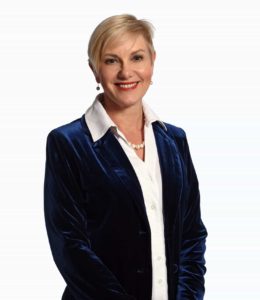
By: Anet Ahern, CEO, PSG Asset Management
When investors start out, most say to themselves “I have a long-term plan”. But just as often, our thinking about what is long term changes as soon as we experience the first market dip. Faced with volatility and uncertainty, our first impulse is to flee to safety.
The most recent statistics from ASISA underscore this tendency to flee to perceived safer assets.
Not only did we see an industry-wide outflow of R24.44 bn for the quarter ended 31 March 2020 (the largest outflow for the past 10 years), but investors continue to abandon equities and multi-asset portfolios in favour of money market and other fixed-income investments. This is a pity, since selling at these low levels not only crystallises what have largely been paper losses, but investors are also likely to be sitting in cash when the market rebounds. While it is impossible to predict market moves, it should be noted that the market (as measured by the FTSE/JSE All Share Index) has already rebounded 40% from the low on 23 March 2020 (as at 10 June 2020). Moreover, the best time to buy (and grow your wealth in the long run) remains when markets are low, however uncomfortable this may feel.
Uncertainty is a feature of our current environment and is sure to be with us for years to come yet. Volatility will come and go, and investors will experience many ups and downs in the future. With the benefit of hindsight, however, we may all despair that we did not act more decisively when quality was to be found abundantly at these low levels. Investors wanting to grow their wealth in real terms, may be well-reminded that the best advice is to be greedy when others are fearful.
Staying focused on the long term has always been the crux of our approach. However, the current crisis is generally referred to with a disconcerting adjective: unprecedented. Because of this, many investors are at risk of thinking “this time is different,” and many clients have asked what we predict for the short term – say a year from now.
Here is what we expect to see if we wind the clock forward by a year:
A lot of incorrect predictions, including some of the ones I’m making here, with many vocal forecasters quietened, especially those who were wrong! Always be aware that a forecast is just an opinion based on a specific viewpoint, and no-one knows exactly how the future will look. A well- diversified portfolio with some built-in flexibility and the right long-term risk profile might just do best when largely left alone. There will be no straight lines and even a low-risk solution is likely to be more volatile than what we are used to as the new normal set in, so it is wise to be prepared for ongoing uncertainty and volatility.
We will look back on many decisions that were made based on emotion and, particularly, fear. Some of these will even have been right for a while, but in the years to come may have led to a significant cost to many investors.
Sequencing risk (the impact of a market decline close to retirement) will have spiked, leading to adjustments in living standards, delaying retirement dates where possible, and lowering expectations of living annuity payouts.
What we have seen so far has mostly been a demand shock as we literally shut down entire economies. The impact of the supply side, with capacity and competition being taken out of the market will only be felt in the months to come as the free market does its job. Back in the 80s when we had sanctions, import replacement was an investment theme. We could see a similar boost for local manufacturers given the slowdown in international trade and the weak rand, and our policymakers
have alluded to this. Globally there is also the possibility of increased inward industrialisation.
We should see the impact of lower interest rates, lower oil prices, some return of business activity and continued lower inflation on our pockets, and a post-lockdown burst of spending could happen. As President Ramaphosa indicated in his address on 21 April, the interest rate cut can potentially channel R80 billion into the real economy, although lockdown muted some of the initial impact of rate cuts.
There will be more Covid-19 deaths, and more businesses will close. This will take an emotional toll as well as a financial one. Together with the uncertainty we already face, this may make all of us vulnerable to irrational decision making.
Who are the winners likely to be? Investors who start with a plan that incorporates a diversified approach, slow their thinking down, calmly assess factual information, raise their awareness of current valuations and ratings in a historic context, think longer term and use their advisers to help with this process. To quote Warren Buffett – If you cannot control your emotions you cannot control your money.



